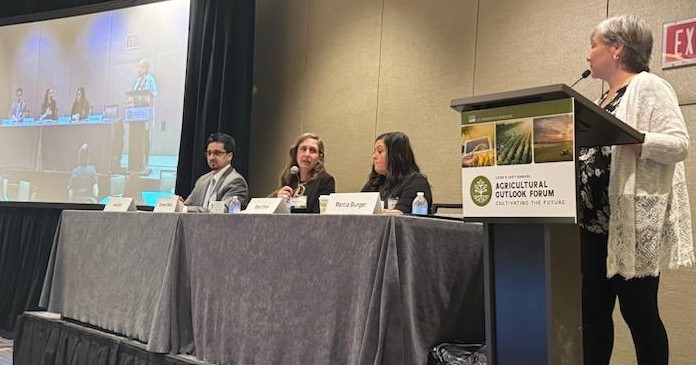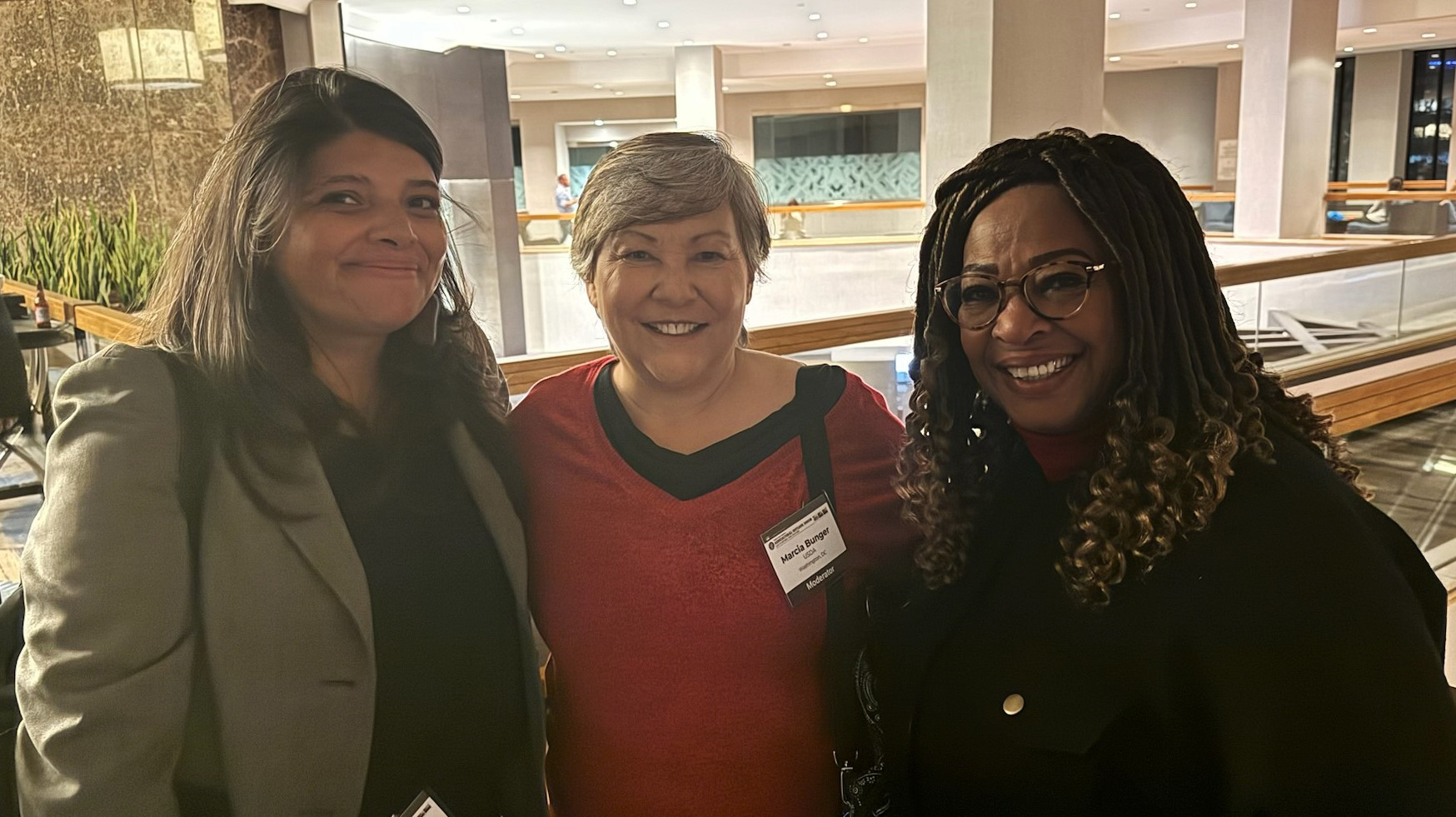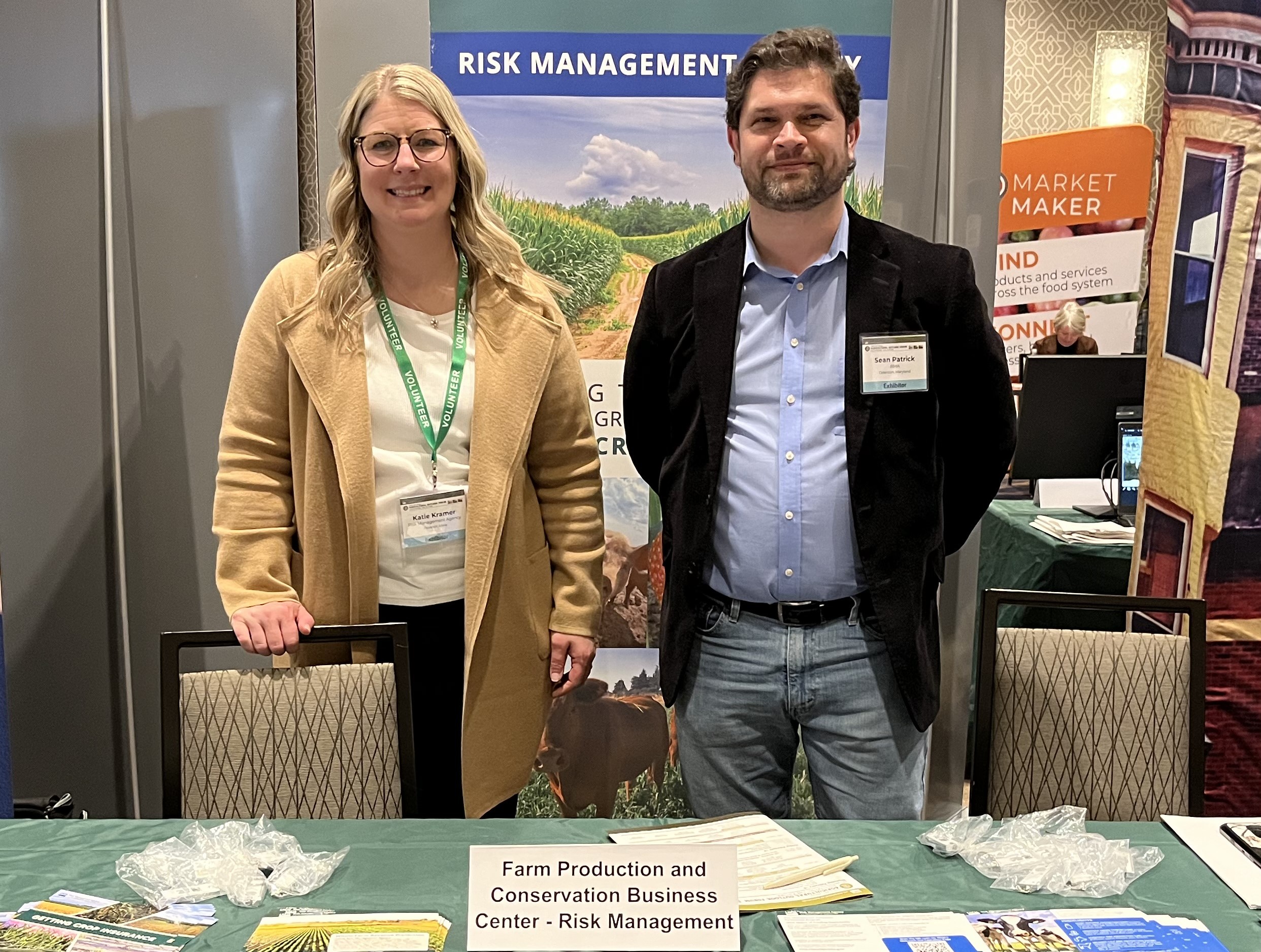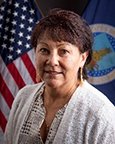February 27, 2024
I attended USDA’s Agricultural Outlook Forum, February 15 and 16, in Arlington, Virginia. This year marked the 100th anniversary of the event, which provides an interchange of knowledge featuring leading experts on agriculture, food, and rural America. Organizers tell me that more than 6,700 people attended.
I was also one of nearly 150 speakers to take part in panels addressing current issues. This year, RMA hosted a discussion exploring USDA’s efforts to improve equity in its programming. Equity, as defined by President Biden’s 2021 Executive Order, means the consistent and systematic fair, just, and impartial treatment of all individuals, including individuals who belong to underserved communities.
I was joined onstage by three panelists, including an economist, producer, and educator.

(L to R) Economist Dr. Anil Giri, Specialty Crop Farmer Carmen Black, Professor Staci Emm, and
RMA Administrator Marcia Bunger, participate in a panel discussion on equity.
USDA’s Agricultural Outlook Forum, Arlington, Virginia, February 16, 2024
Economic Research Services (ERS) economist Dr. Anil Giri presented results from surveys on participation of underserved producers in government programs and crop insurance. He provided a summary of ERS research, including America’s Farms and Ranches at a Glance.* Among other findings, he pointed out that less than eight percent of all American farms and ranches are owned or operated by farmers of color.
“I believe this session was able to provide a holistic overview on key topics of importance to USDA because of the diverse backgrounds and topics covered by the speakers and moderator,” Anil told me. “This discussion and platform contributed and informed on underlying equity-related challenges to a broad set of audiences and stakeholders.”
A USDA employee of four years with the Resource and Rural Economics Division of ERS, Dr. Giri’s main research focus is analyzing the financial performance of farms, including how agricultural policies affect farm household income and wealth. This was Anil’s second year supporting our joint RMA-ERS sponsored panel at the Forum.
Specialty producer, Carmen Black, added to the discussion with her perspective as an underserved producer sharing the most useful resources for federal and state initiatives and ways to improve our programs.

Carmen Black
Iowa Specialty Crop Farmer
“I really appreciated sharing and hearing the experiences of other farmers,” she told me. “I hope that in the future other organizers follow the lead of RMA and invite producers to share their perspectives at future Ag Outlook Forums.”
Carmen’s presentation included photos illustrating her life as a beginning farmer and the Iowa community that she serves with Community Supported Agriculture (CSA), a production and marketing model whereby consumers buy shares of a farm’s harvest in advance.

(L to R) Deputy Under Secretary Gloria Montano-Greene, RMA Administrator
Marcia Bunger and Footprint Farms CEO and RMA Ambassador Dr. Cindy Ayers
USDA’s Agricultural Outlook Forum, Arlington, Virginia, February 16, 2024
Rounding out the panel, Professor Staci Emm, from the University of Nevada – Reno, touched on experience, benefits, and challenges faced by organizations trying to reach underserved producers who have not participated in Federal crop insurance. Much of her presentation touched on cross-cultural communication and recognizing that different cultures communicate differently.
“To work in different diverse environments requires an understanding and appreciation of the people, their culture, and lifestyle,” Staci told the audience. “We need to collaboratively seek new ways of looking at old problems and redefining problems to see things more objectively from different points of view. Transform problems into opportunities!”
Staci grew up and currently lives on the Walker River Indian Reservation in Schurz, Nevada. As part of a generational farming and ranching family on a reservation, she brought an invaluable perspective as we are doing more to remove barriers to participation in crop insurance for Indigenous producers.

RMA’s Katie Kramer and Sean Patrick at the agency’s information booth.
USDA’s Agricultural Outlook Forum, Arlington, Virginia, February 16, 2024
It was such a privilege to listen to the three panelists. Almost 70 people were present in the room and 130 tuned in virtually! I know I left that day feeling so much hope in the future of agriculture for not just a few but for many.
I would be remiss if I didn't take time to thank those team members behind the scenes that did so much work to prepare for the day and support our presence at the event - Thank you to the RMED team, RMSD’s Brent Orr, Senior Program Analyst Mike Ciliege, and our partners at ERS!
– Marcia

Marcia Bunger is the Administrator of USDA’s Risk Management Agency (RMA). Prior to her appointment, she served as a County Executive Director for USDA’s Farm Service Agency. A native South Dakotan, Bunger is also the owner and operator of a 2000-acre farm, a cum laude graduate of Augustana College, and the first member of the Asian American and Pacific Islander community and first woman to serve as RMA Administrator.
*For other ERS reports, resources and statistics, consider reading the following:
USDA ERS - Socially Disadvantaged, Beginning, Limited Resource, and Female Farmers and Ranchers
USDA ERS - An Overview of Farms Operated by Socially Disadvantaged, Women, and Limited Resource Farmers and Ranchers in the United States
USDA ERS - Farm Size, Specialization Are Among Factors Influencing Financial Performance of African-American Farms in the United States
